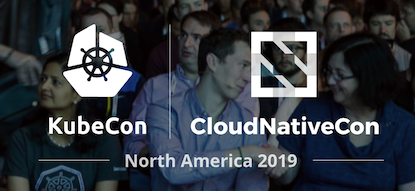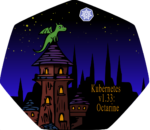
KubeCon kicked off this morning in San Diego, bringing together adopters and technologists from the open source and cloud-native community. A number of companies are at the event, making announcements for their Kubernetes solutions.
Here are today’s highlights:
Gremlin brings chaos engineering to Kubernetes
Gremlin has announced Kubernetes support for its Chaos Engineering platform. It will allow customers to easily identify, target, and experiment Kubernetes objects to discover weaknesses.
According to Gremlin, the ability to do chaos engineering on Kubernetes will help increase confidence in Kubernetes.
“Kubernetes is becoming the default way to build highly scalable applications at many large enterprises,” said Matthew Fornaciari, CTO and co-founder of Gremlin. “Our goal is to provide SRE and DevOps teams that are building and deploying modern applications with the tools and processes necessary to understand how their systems handle failure, before that failure has the chance to impact customers and business.”
TrilioVault for Kubernetes in technical preview
Trilio has announced a technical preview of TrilioVault for Kubernetes. According to Trilio, the solution helps make backup and recovery of workloads simple.
The solution can support any storage target, which makes it ideal for cloud-native environments, the company explained.
“TrilioVault made significant inroads into the virtualization market by offering an agentless approach for scale-out, multi-tenant environments,” said David Safaii, CEO at Trilio. “Our core architectural approach is ideal not only for data protection in container environments that IT and Infrastructure Managers crave, but also for application lifecycle management of those workloads for the DevOps community that aids in the acceleration of development cycles on an application’s journey into production. It’s an opportunity we plan to take full advantage of as more and more enterprise container workloads move to production in public and private cloud infrastructure deployments next year and beyond. Wherever container-based applications live, Trilio will be there to provide resiliency, recoverability and version control.”
Citrix announces new solutions to help companies on their journey to microservices
Citrix has announced five new ways to help companies on their journey to microservices.
It will expand its Google Anthos integration to work on-premises. This will allow customers to integrate their existing on-premise Citrix ADCs, such as MPX, VPX, and CPX with Google Anthos.
It also announced a holistic observability stack. The stack is based on four pillars, including logging, metrics, tracing, and service graphs.
Other additions are mTLS support for securing Istio service mesh environments, enhanced ingress security for APIs, and simpler ingress management for TCP/UDP applications with Citrix Ingress Controller.
HPE Container Platform now available
HPE has announced the release of the HPE Container Platform. The platform is a Kubernetes-based container platform that customers can use to modernize and accelerate their application development.
Key benefits include the ability to modernize non cloud-native monolithic architectures, build applications once and run anywhere, improve productivity for developers, and ensure enterprise-class security.
Alcide debuts Alcide kAudit
Alcide has announced an early access program for Alcide kAudi, which is a tool for investigating and analyzing multi-cluster Kubernetes deployment for breaches, anomalous behavior, and misuses.
The solution will allow users to better monitor the health of their Kubernetes clusters. A few suspicious patterns that it will detect are stolen credentials, stolen tokens or misconfigured RBAC, exploited vulnerabilities in the Kubernetes API server, and violated security policies.
HyScale open sources app development tool for Kubernetes
HyScale has open sourced its app delivery automation tool. HyScale believes this will provide developers with a friction-free way of deploying applications to Kubernetes.
“Developer experiences with k8s are quite complex; there is a clear need for app-centric Kubernetes abstraction and well-defined automation for clear handoff between the dev teams and IT,” said Anoop Balakuntalam, head of HyScale. “With HyScale, developers can now easily deploy their apps to k8s without having to navigate through the associated complexities or write and maintain voluminous manifests and scripts.”
Rookout announces new Hybrid Kubernetes Debugger
Rookout has announced a new Hybrid Kubernetes Debugger. This will allow developers to discover and fix problems on the fly, without needing to write ned code.
“We’ve seen DevOps teams continue to struggle with debugging Kubernetes microservices using traditional methods,” said Or Weis, CEO and Co-Founder of Rookout. “They either debug on their local machines and hope that it mirrors accurately what’s happening in the cloud, or they write endless log lines to gain better visibility into how their applications are behaving.”
SignalFx Kubernetes Navigator now available
SignalFx has announced a new observability platform for Kubernetes. The SignalFx Kubernetes Navigator will help operators monitor and analyze their containerized environments.
SignalFx Kubernetes Navigator is being offered as an add-on module to the company’s Infrastructure Monitoring solution.
Key benefits that the solution will provide include reducing mean time to clue, expediting troubleshooting, reducing mean time to defect, expediting root cause analysis, and maintaining a secure and enterprise-grade infrastructure.
YugabyteDB now available on Crossplane
Yugabyte has announced that YugabyteDB is now available as a self-managed database on Crossplane, which is a multicloud control plane. According to Yugabyte, YugabyteDB is on the first distributed SQL databases available on the platform.
This addition will allow customers to easily provision and manage YugabyteDB clusters on GKE, Amazon EKS, and Azure Kubernetes Service.
“As software organizations deploy ever-larger numbers of Kubernetes clusters and are increasingly choosing a multi-vendor approach to cloud infrastructure services, open-source projects such as Crossplane solve the challenge of simplifying multicloud application management,” said Karthik Ranganathan, co-founder and CTO of Yugabyte. “YugabyteDB is an open-source Kubernetes-native distributed SQL database, and Yugabyte’s commercial offerings – the Yugabyte Platform and the Yugabyte Cloud – are built on the same multicloud principles as Crossplane. We are excited to offer YugabyteDB on Crossplane, as the natural next chapter in our journey.”








